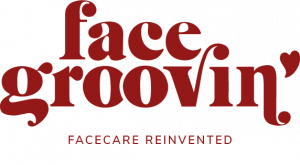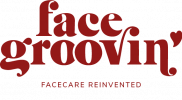We’ve known for a long time now that social media can have a significant negative impact on our well-being. FOMO, or „fear of missing out,” isn’t the only risk that comes with social media use. It’s always been easy to compare ourselves to our closest friends, neighbors, or community, but in today’s Insta-bubble, we have the lives of celebrities, actors, and supermodels right at our fingertips. Paradoxically, though, the most dangerous thing about social media is how it allows us to compare ourselves to a more „perfect” version of ourselves.
A window to the world
On the one hand, when it comes to beauty culture, social media can be like a breath of fresh air. Plus-size models share the latest fashions, while body activists post profile photos that reveal their real, unfiltered, and imperfect bodies. This all new to the world of beauty and fashion. Social media can be a valuable space for representation, and for creating new norms when it comes to how we approach fashion, beauty, and our lifestyles in general. So why does it cause so many problems?
What do plastic surgeons say?
A decade or two ago, people went to plastic surgeons or aesthetic medicine because they longed to look like celebrities. Women would come in with a photo of a particular nose, or simply a desire to look younger. Today, we compare ourselves less often to the stars, leaving those torn-out magazine photos of Angelina Jolie at home. What’s changed? Along with advances in aesthetic medicine and new, non-surgical options for face modeling, we more often head to the doctor’s office because we want to look like ourselves — on social media.
A filter like a facelift
Some applications allow us to use filters to touch up the way we look. These might give the appearance of makeup, add freckles, or give you a tan — but most of them simply transform your facial features. Your nose will look smaller or slimmer, your cheekbones higher, your mouth and eyes significantly bigger. Your skin appears silky smooth and radiant, as the filters can eliminate not only wrinkles and unevenness, but make your pores magically disappear.
Even plastic surgeons attest that the quest for a „perfect” appearance can qualify as a mental health issue. In Poland, we call it „body dysmorphic disorder,” while others call it „Snapchat syndrome.” The problem is it’s hard to see from the outside when things like this get out of control. In cases like these, a person zeroes in on a small physical flaw (or even not so much a flaw, but a physical trait that probably no one else notices) — and inflates its importance. Many of us went through something like this in our teen years, when our bodies were changing, leading to stress and missed sleep over our nose, eyebrows, chin, or a forehead scar.
Today, body dysmorphic disorder affects adults as well. When we can change how our faces look onscreen with a single swipe, it becomes difficult for us to accept our appearance without filters — especially since filtering is so popular on social media. It’s easy to become convinced that you’re the only person on earth with a dull complexion, imperfect skin, or a crooked nose, especially when making new friends or introducing yourself to online friends in the offline world. In the most severe cases, this issue can lead to suicide. In others, it can encourage people to go to impossible lengths to look like their online selves in the offline world.
A study conducted by Dr. Katharine Phillips, involving more than 500 patients, found that people suffering from body dysmorphic disorder tend to focus on the following things the most:
- skin (73%)
- hair (56%)
- nose (37%)
- weight (22%)
- belly (22%)
- breasts / nipples (21%)
- eyes (20%)
- thighs (20%)
- teeth (20%)
- legs / general appearance (18%)
- body structure / bone structure (16%)
- face (14%)
- face size / shape (12%)
- lips (12%)
- buttocks (12%)
- chin (11%)
- eyebrows (11%)
- hips (11%)
- ears (9%)
- arms / forearms (9%)
- waist (9%)
- genitals (8%)
- cheeks / cheekbones (8%)
- baldness (8%)
- height (7%)
- head size / shape (6%)
- forehead (6%)
- feet (6%)
- hands (6%)
- jaw (6%)
- lips (6%)
- back (6%)
- fingers (5%)
- neck (5%)
- shoulder blades (3%)
- knees (3%)
- toes (3%)
- ankles (2%)
- facial muscles (1%)
How to avoid comparing yourself to your avatar
For some of us, these issue don’t each the level of a disorder — but even then, it’s worth taking a look in the mirror and asking ourselves these questions:
Do I accept myself?
Am I interpreting my appearance realistically?
Do I have high self-esteem?
Do I accept that my face, skin, hair, physical condition, and muscle mass will change over time?
Are my expectations for my appearance realistic?
Do the people I interact with on social media always present themselves with makeup or a filter? Or do I also have the chance to see them the way they would look in the grocery store or at home?
Do I feel uncomfortable when I have to appear on social media without filters?
Am I OK with myself as I am?
It might seem strange that we’re bringing up a topic like this all while promoting exercises to your face and body. The truth is, we all want to look our best — but it shouldn’t be at the expense of our mental health and wellness. Perhaps what we really want is to look the best we can, humanly speaking. Or maybe a better goal is to look as healthy as possible — and not only look, but truly be and feel healthy. At Facegroovin’, we’re guided by the idea of feeling good in our own bodies, and approaching our bodies gently, letting go of harmful fantasies.
Why you’ll never look like a selfie
Even without filters, a selfie makes our face look different than it does in real life. You might not be aware of this, but the latest smartphones actually have built-in selfie filters! They’re designed to smooth the face and make your skin look more even. This means photos with #nomakeup don’t always show the full story. It’s also a question of the lens. Do a quick search for „focal-length portraits,” and you’ll see what the lens of a phone camera does to your facial proportions. Pay close attention to the information about the nose … no one really looks like that! This said, selfies clearly cannot — and should not — be the image we aspire to look like.
In closing, we have two more tips:
Do yourself a favor and unfollow any social media accounts that make you feel like comparing yourself to other people — or even just not feel very good. Whether it’s about skin, hair, or a luxurious lifestyle, there’s no need to compare someone’s five minutes on social media to the rich, complex realities of our everyday lives. Remember: People only post the highlights online.
Whenever you feel a self-criticism rising within, remember the people you love: your partner, friends, children, and others. Do you really care what their noses, teeth, and hair look like? Probably not — you most likely love their laugh, their insights, their intelligence, the peace of mind they bring, or the energy they add to your life. There’s no reason to be harder on yourself than you are on your loved ones. After all, you’re in a lifelong relationship with yourself!
Nie ma powodu, by traktować siebie surowiej niż ukochane osoby. W końcu związek ze sobą masz na całe długie życie.


